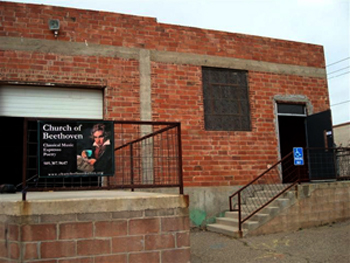Jonathan L. Friedmann, Ph.D.
Søren Kierkegaard wrote, “Music, like time, is measured but immeasurable, is composed but indivisible” (Either/Or, 1843). A subject in William James’ The Varieties of Religious Experience (1902) compared a spiritual experience to “the effect of some great orchestra when all the separate notes have melted into the swelling harmony.” These quotations speak to the immediate and all-consuming effect of music. While musical elements can be distilled and analyzed through the study of a recording or score, their collective impact defies mechanical examination.
Such is the nature of musical completeness. In an instant too brief to quantify, the entirety of one’s being is affected by an indivisible sonic force. The congealed parts of the musical whole—pitches, rhythms, timbres, durations, dynamics—stimulate the inseparable components of the person—mind, body, emotions. It is a holistic experience.
Yet, there is also a sense in which music is incomplete. Both Kierkegaard and James’ subject allude to an attribute common to all music: evanescence. Much of music’s effect comes from its instantaneous materialization. It tends to enter our perception without warning and manipulate us with or without our permission. However, just as quickly as it enters our awareness, it disappears. Each passing beat, each successive phrase, each fleeting chord evaporates as soon as it is heard. The sounds emerge without physical substance, and leave no physical trace behind. Of course, efforts can be made to transcribe or stipulate a performance with written notation; but this is only an approximation. Every performance is unique.
Something similar occurs with recorded music (and to a lesser degree synthesized music). Though recordings can capture musical occurrences and replay them with near precision, the listener will never hear them the same way twice. Musical perception is influenced by the accumulated experiences leading up to a particular listening, not to mention what the listener is doing, thinking, and feeling when the recording is being played. Thus, permanence is lacking even in the most carefully fossilized music.
Music is, then, both complete and incomplete. In the micro-moment of perception, it is a single, wholly formed, and ineffable force. The listener’s response is likewise inclusive, engaging the mental, physical, and emotional realms. But when we zoom out to view the broader phenomenon, this completeness—so viscerally felt by the listener—begins to dissipate. What once seemed absolutely whole becomes fundamentally partial. The image of indivisible notes melting away into an all-embracing harmony is replaced with rapidly appearing and disappearing musical phrases, the effect of which changes in accordance with changes in the listener.
Visit Jonathan’s website to keep up on his latest endeavors, browse his book and article archives, and listen to sample compositions.

